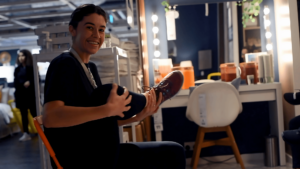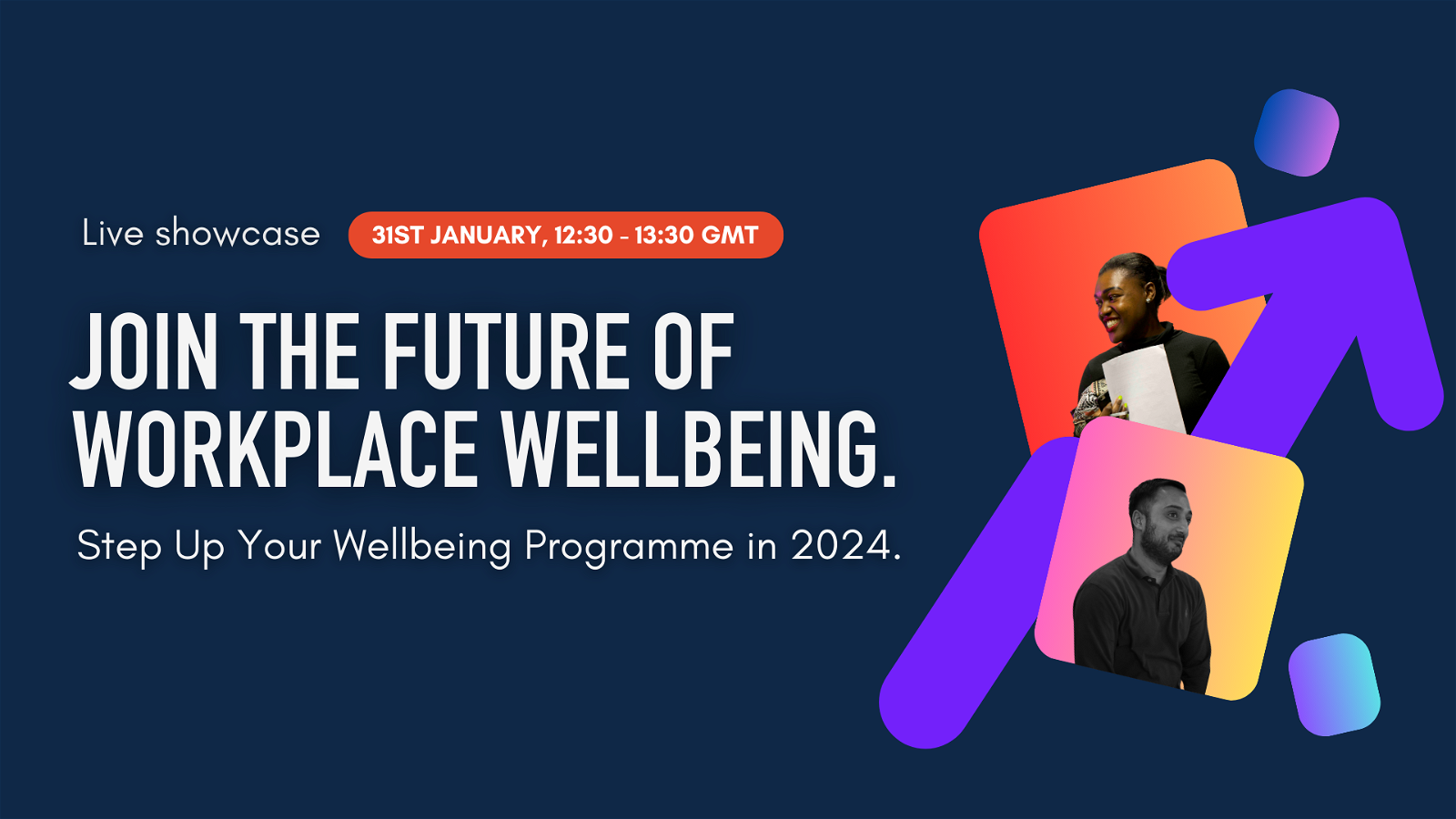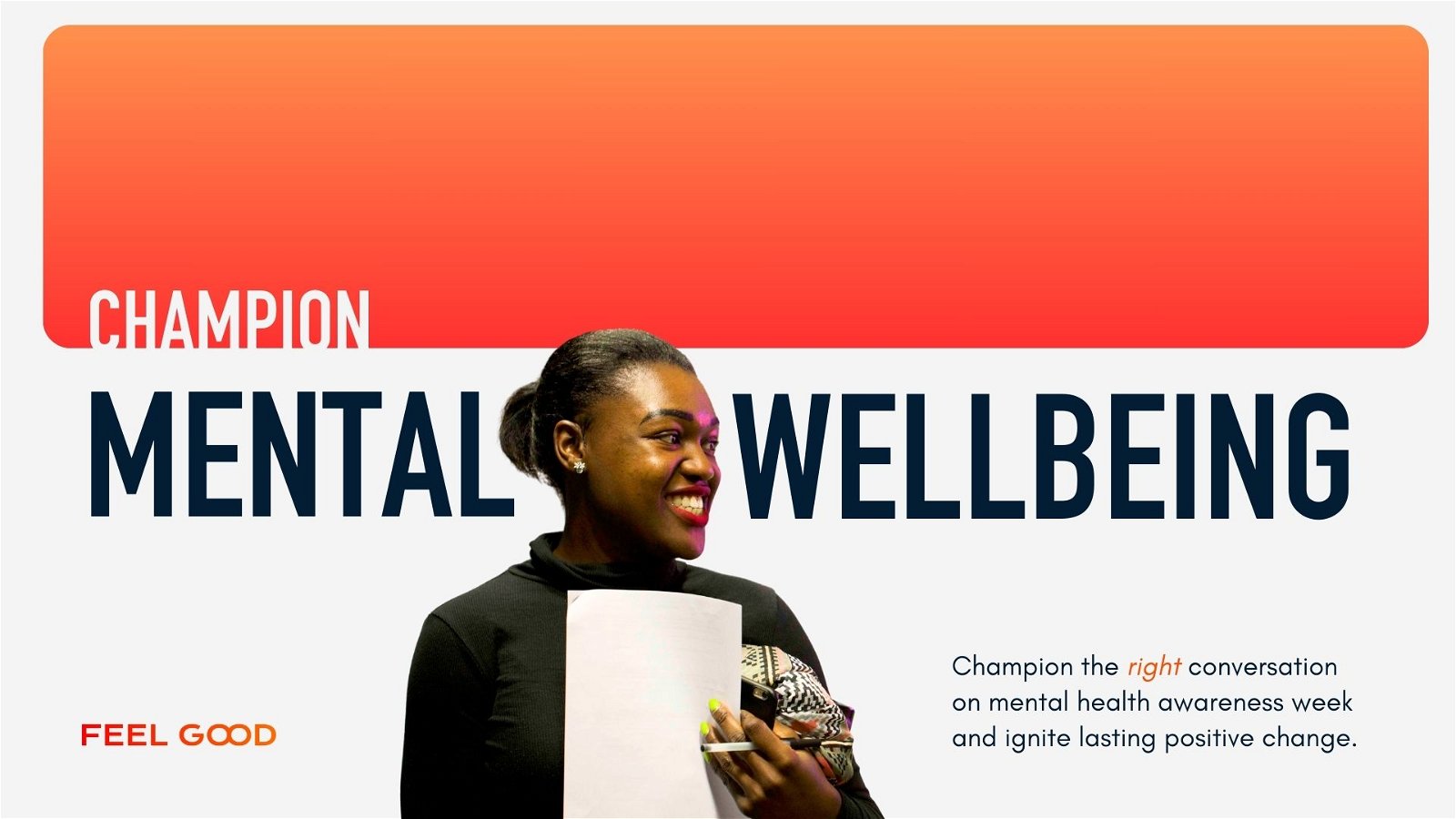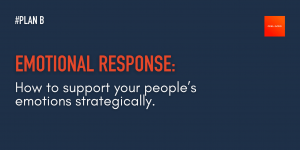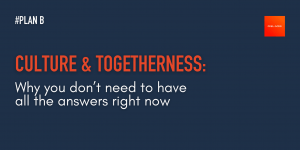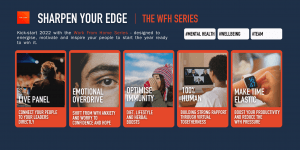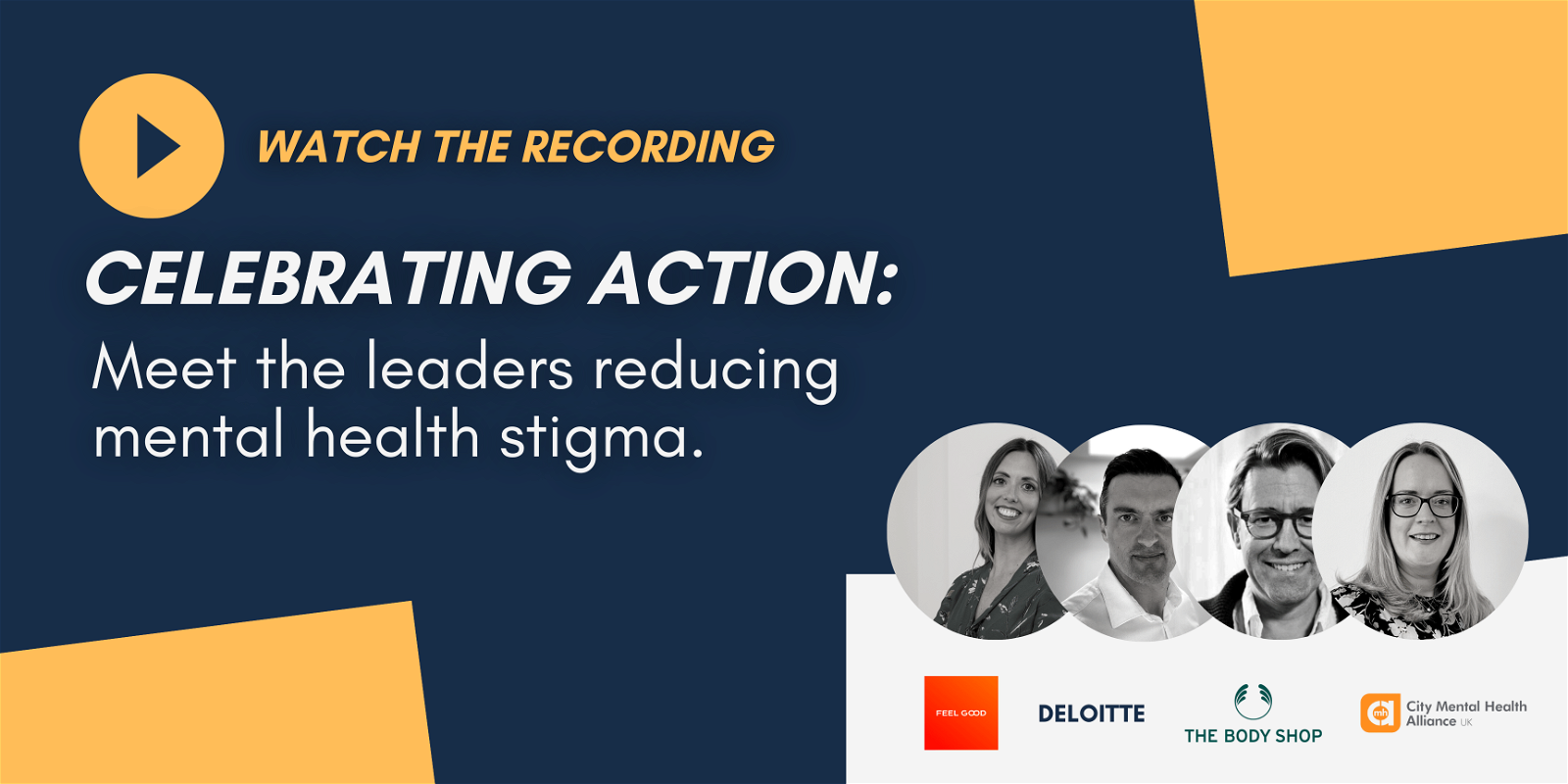Posted on: December 9, 2021
‘Plan B’: Empower your people through the WFH order
The government has unveiled its COVID-19 Plan B to protect the NHS from unsustainable pressure during the upcoming winter. This will involve vaccine passports, ...
By Richard Heasman
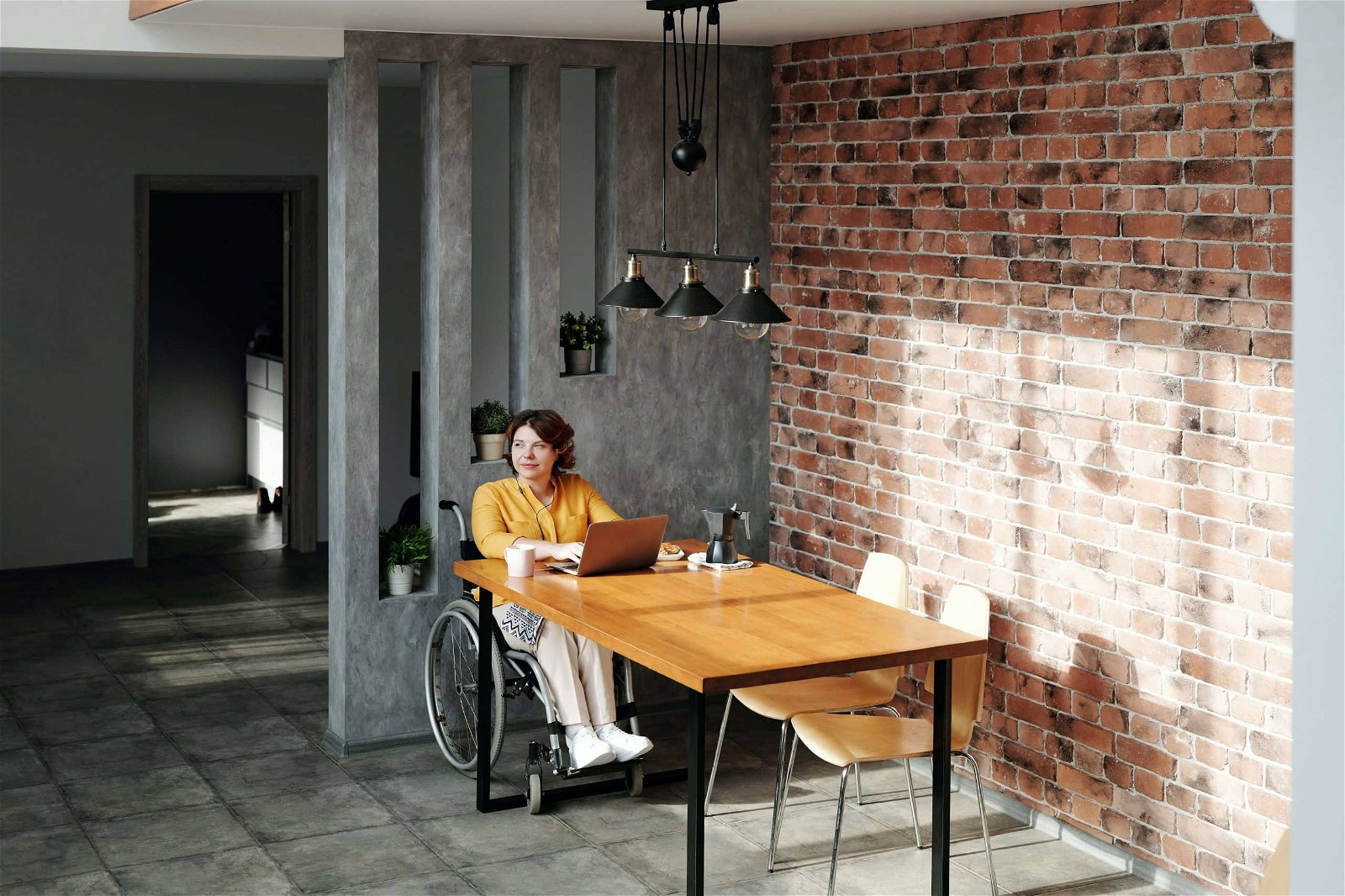
The government has unveiled its COVID-19 Plan B to protect the NHS from unsustainable pressure during the upcoming winter. This will involve vaccine passports, mandatory face coverings and a recommended work from home order.
The recommended work from home order will be welcome news to some and unfortunate news for others. Our latest research, published here, shows that while some of us flourished working from our kitchens and living rooms, others ‘languished’ – a mental state of feeling underwhelmed and experiencing wellbeing-nothingness.
Plan B could also be a precursor to a winter lockdown. While many of us will be more prepared for any upcoming change, the responsibility of supporting our people’s mental wellbeing over the next 4-8 weeks falls again on organisations like yours.
As always, Feel Good is on hand to provide support & solutions for organisations and their people around the world. Book a call with our solutions team to create your gold standard wellbeing programme today.
[calendly url=”https://calendly.com/laura-feel-good/30min” type=”1″]
In this article we will explore:
- Emotional response: How to support your people’s emotions strategically
- Culture & togetherness: Why you don’t need to have all the answers right now
- Direct support: How to launch a tailored wellbeing initiative to carry your people into 2022
Emotional response: How to support your people’s emotions strategically
The recommended work from home order will reignite uneasy emotions around the return to the workplace debate. Many organisations have called for their people to return to the office, at least for 3 days a week, arguing that remote working stifles innovation, creativity and collaboration.
This creates at least 4 different emotional responses to consider:
- Those who are relieved: The government’s Plan B recommends that people work at home to stop the spread of the Omnicron variant, which will hopefully ease the anxiety felt by individuals who were never totally comfortable with coming back anyway.
- Those who are distressed: On the other hand, those that want to be in the office will be upset at the news of potentially having to work from home again and will be hoping that their organisation won’t call for a closing of the office.
- Those that are somewhere in between: Many people have adapted to this new normality and have the luxury of being able to work from home quite comfortably. However, this doesn’t mean that they won’t be concerned about this news – Plan B is a clear sign that things are getting worse and they will be worried about their colleagues, family, and friends.
- The messengers: It’s not easy being the leader that has to inform their people of the decision your organisation makes. How can employees be empathetic of leaders who have to make these decisions, or deliver the message to their teams?
Lessons from lockdown
As we approach Christmas, heartbreaking memories of the lockdown over Christmas will be adding to our collective anxiety – people not being able to spend any time with loved ones over the festive period in 2020 was a hard pill for all of us to swallow – and fears of another lockdown Christmas won’t be far from anyone’s minds.
Our collective experience however has aligned many of our needs. As our latest report states:
- “The last few years have accentuated some of humanity’s most essential and overlooked emotional, social, physical and mental needs, such as our need to connect, move, support each other, create and reflect.”
- “The recent increased focus on mental health and emotional difficulties has allowed our society to understand our brilliant minds and bodies better, create a common language to discuss emotional health, and build more empathy and connection in organisations.”
We are actually well placed to support our people now. Here are a few ideas from our Solutions Experts:
- “Transparency and over-communication: be honest about how the decision is impacting you and the organisation but in a positive and with a growth mindset. Communicate and keep people up to date even when you don’t have all the answers.”
- “You don’t need to have answers, but our research shows that simply having the conversations about working preferences and emotions, can increase the sense of belonging in teams, which then impacts engagement and wellbeing.”
Culture & togetherness: Why you don’t need to have all the answers right now
Organisations have until Monday to let their people know what the deal is. Having already experienced remote working for over a year, many organisations have already re-evaluated their working policies to be ready for announcements like this.
Communicating change, however, creates friction. Our latest research shows that “one in three employees experiencing organisational change is not clear on why the change is happening.”
It is more important to communicate in a consistent and regular manner and be transparent with the vision for the future than it is to have all the answers right now. If your organisation consistently communicates its desire to support its people through this time with wellbeing initiatives, mental health support, and clear leadership, your people are much more likely to respond positively.
What happens when people don’t agree with the message?
Not everybody will agree with whatever decision you make, and that’s okay. Here are three different strategies that are sure to help with those difficult conversations:
- Focus on the ‘why’: Focus on their understanding of the rationale. Explain, non-emotionally, what their concerns are and also how they hope they will be proven wrong and what they hope they will see instead.
- Follow with empathy: Hold an open, informal conversation about what others thoughts are. Show respect for the decision-makers.
- Remain transparent: Avoid the dissonance of mixed messages – be open about what you feel and hopeful in language and body language. If your view changes, share it.
Many people now understand that things will change and we don’t have control over them. What we do have control over however is our individual response to change.
Loneliness and the need for connection
If your organisation does follow the government’s guidelines, then a focus on preventing loneliness and forging new ways to connect with colleagues will be essential.
As our report states: “Looking forward to hybrid working as the new norm, both employers and employees have concerns about a loss of community and culture due to limited interaction amongst colleagues.”
“According to a McKinsey survey, 44% of employees fear a loss of community and connection to colleagues, and 43% expect less collaboration between individuals and teams if remote working practices are used.”
Our solutions experts recommend these three exercises:
“Create a clear list of permission slips and commitments from your team to ensure you are all aligned in how you can maintain the team’s cohesion while back from home. To do so, use the following questions:
- What would you like to receive from your colleagues on a weekly basis to make you feel included and belonging?
- What will you offer/give to your colleagues to ensure they are feeling looked after, included and supported?
- Reflecting on the previous lockdown, what is one thing our team can avoid / should look out for, that could undermine our collective resilience or the wellbeing of our team?”
Direct support: Launch a tailored wellbeing initiative to carry your people into 2022
Feel Good have supported global organisations throughout the many different phases of this pandemic, like Law practice Baker McKenzie.
Our tailored live sprints create an opportunity for colleagues to come together in a safe, expert-led environment and bond over individual and collective learning. Learn more about our WFH live sprint by booking a call with our partnerships team below.
[calendly url=”https://calendly.com/laura-feel-good/30min” type=”1″]
PSYCHOLOGY-POWERED SOLUTIONS THAT DRIVE IMPACT
Feel Good evolves how your people think, feel and perform with strategic thinking and engaging learning solutions powered by the latest organisational & behavioural science.
